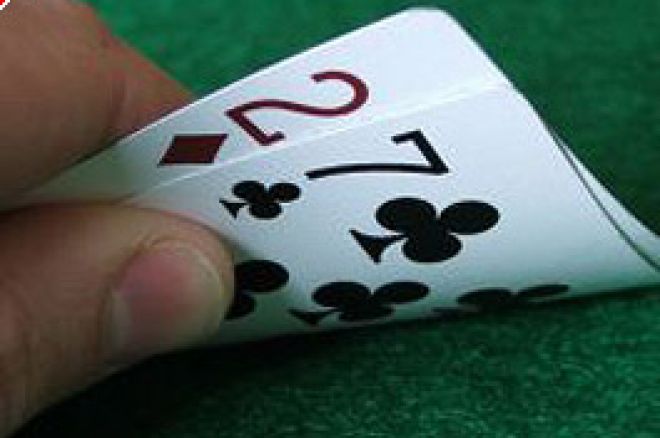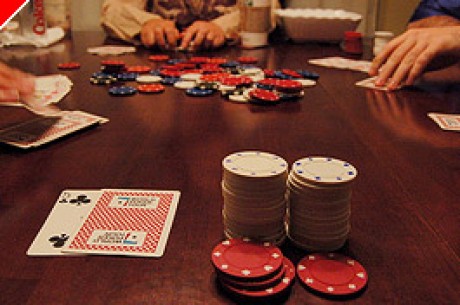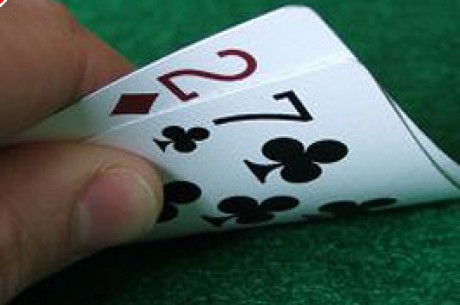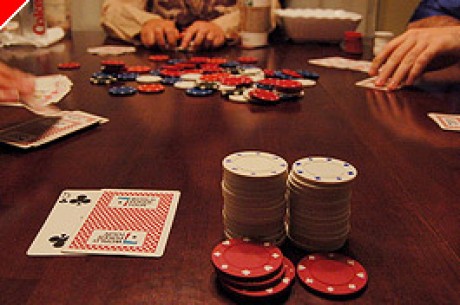The 'Other' Games of Poker: Shirley Rosario on Limit Omaha Hi-Lo

Shirley Rosario is a consummate example of an all-around player. A fixture on the Southern California tournament scene, Rosario won the an Omaha hi-lo event at the 2005 Legends of Poker and has numerous final table finishes in hold'em, Omaha, and stud events at L.A.'s Bicycle and Commerce casinos. A former prop player, she is now a full-time poker professional, found primarily these days in Omaha hi-lo and H.O.R.S.E. cash games and tournaments on Poker Stars and writing about her experiences on her website, 'Poker-Babes.' Shirley was kind enough to join us this week to discuss her favorite game, limit Omaha hi-lo.
Nicole Gordon: As a prop player at the Bicycle Casino, you were exposed to all forms of poker. How did Omaha hi-lo evolve into your game of choice?
Shirley Rosario: Omaha hi-lo had been my game preference before I started working as a prop. I spent hours on end learning the game before the idea of being a prop ever entered my mind. Propping helped me appreciate all the games more and improved my hold'em game immensely, but Omaha was always at the top of the list. I found that the edge in Omaha was greater than any other game because the players didn't understand some of the basic principles.
NG: I find an enormous difference between live and online Omaha 8 games. Online the majority of flops tend to be seen three or four handed, but when I play live down at Commerce, it's not that uncommon to find everyone in the pot and it's much more difficult to put people on hands. How, if at all does your strategy change in these super-loose games?
SR: I normally play a really aggressive game which usually leads to hands with fewer opponents. This style works well for me. When I join tables where everyone is involved in every pot, I will try and change the table to suit my style. Many times that doesn't work (not for lack of trying), so I have to make adjustments and play hands with more rigid starting requirements. I still push those hands because I am pretty certain they are the dominating ones, but the weaker starting hands go in the muck.
NG: What are some of the most common mistakes that you see from Omaha 8 newbies?
SR: The biggest mistake I see players make is continuing on with a hand when their only possibilty is winning half the pot. If for example a player has A-3-4-K double suited in red and the flop comes T-8-5 with all clubs, then the player should often fold if a player leads out into them.
NG: I always find play from the blinds difficult in Omaha hi-lo, maybe more so than in hold'em. In a standard multi-way limped pot (3-5 handed) what are your minimum pre-flop calling requirements from the small blind?
SR: It depends on the limit of the game. In the games I play, I very rarely play a hand from the small blind that I wouldn't voluntarily play in another position. Putting those two extra chips in the pot can often cost a lot more.
NG: Onto some hands. Let's say I'm in the big blind with the Kd-Kc-7d-9c and I get a free flop along with 4 limpers. The flop is the 5h-6s-8c, giving me the (current but vulnerable) nut straight The SB checks. Would you check, bet, or check intending to check-raise?
SR: If the last person bets and the small blind folds, I would check-raise trying to split up the equity in the pot. I am not interested in playing a big pot with this hand. I am looking to play this pot for one bet unless I am the person making it two trying to protect my hand.
NG: What if I'm in position a three-way limped pot with the Ah-3c-Jc-Jh. The flop is the 4s-Js-Kh, giving me middle set, a backdoor second nut low draw, a backdoor nut flush draw and a backdoor wheel draw. How would you proceed in the hand if the first limper bets and the second limper calls?
SR: We have already established that I am an aggressive player. I would raise!
NG: What if the first limper bets and the second limper raises?
SR: I would three-bet to take advantage of my position and to control the remaining action of the hand.
NG: Here's a situation I ran into online just a couple of days ago. I had the Ad-2d-Kc-Qh on a final board of Ks-3d-5d-8h-Jc. My nut flush draw had missed, though I made the nut low on the turn, and was left with only top-pair-top kicker for high. On the river, I checked, the second player bet and the third player raised. I knew my high was probably toast and there was a strong possibility of getting quartered for the low. Everything told me to fold but I called anyway. Marginal mistake or flushing money down the toilet? Or both?
SR: It's not flushing money down the toilet because you called two bets thinking you were getting at least 1/4 of the pot. With three players involved in the pot, your 1/4 was certainly more than the two bets you called at the showdown. On the flop and turn, you had a great draw to get you at least 3/4 of the pot (that's not even factoring in your top pair). These are the pots we are trying to play. The river didn't go your way. Just call down, take your very small profit and play the next hand.








